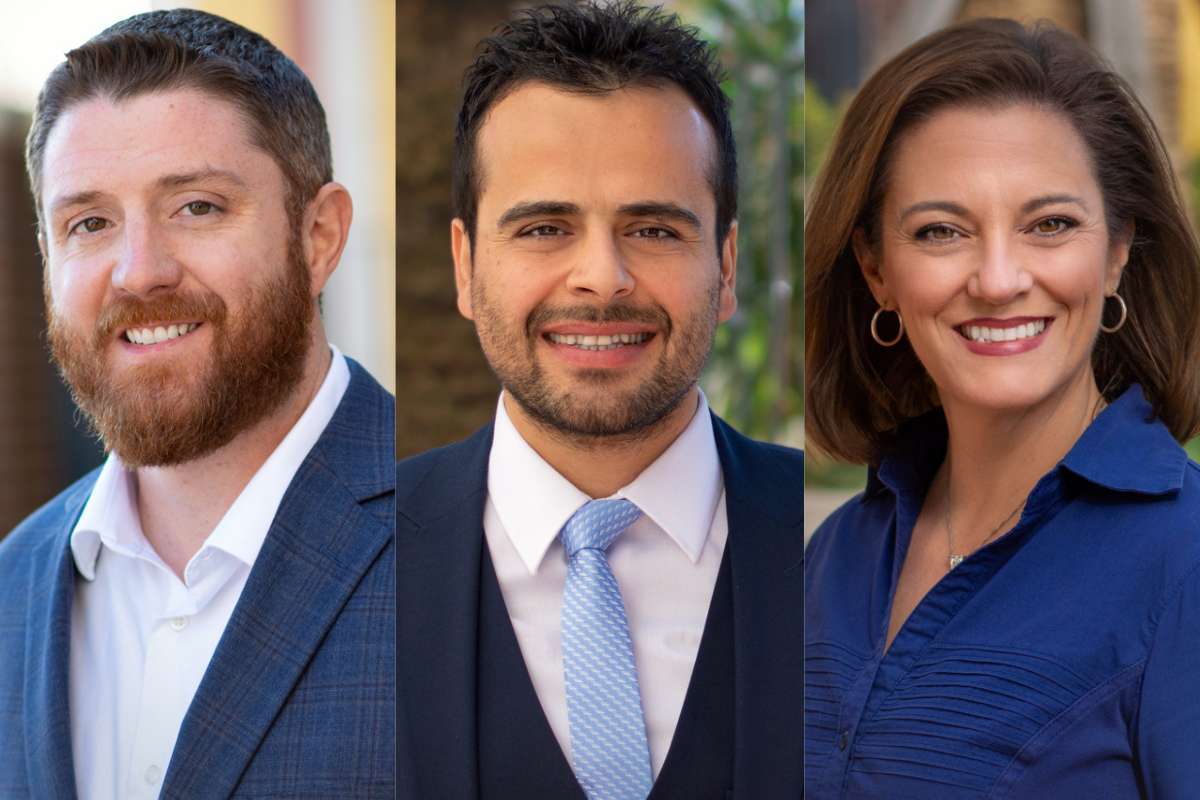Organizing an ocean of possibilities: FSU hospitality researchers craft a roadmap for AI research in new study

Between the boundless potential and the grim peril of artificial intelligence is an ocean of possibilities so vast that its enormity alone can douse research.
In a new study, researchers from Florida State University’s Dedman College of Hospitality aim to chart a course for AI research in their field — and beyond.
Professors Nathan Line and Lydia Hanks and Associate Professor Tarik Dogru served as lead authors of the study published in the Journal of Hospitality and Tourism Research. In a testament to the scale of the topic, Dogru, Line and Hanks enlisted 27 co-authors on the paper.
Together they say the paper provides a framework to help guide future inquiry into a conversation that has exploded since the release of artificial intelligence chatbot ChatGPT last November.
“Everyone has an opinion on how ChatGPT will impact academia, how it will impact research and the tourism and hospitality industry,” Dogru said. “What we noticed is that opinions about ChatGPT and artificial intelligence in general are scattered. There is an ocean of possibilities out there and the conversation wasn’t cohesive or especially productive.”
To address that challenge, the authors developed a model that demonstrates how the introduction of generative artificial intelligence (GAI), like ChatGPT, impacts the relationship between hospitality and tourism firms and social and industrial stakeholders. In the model, that interaction results in the creation of value or the destruction of value.
“It wasn’t really about any one relationship; it was about painting a picture of all the possible relationships,” Line said of the model. “I don’t see this as a framework for the hospitality and tourism industry so much as a framework for research.”
Dogru added: “We focused on hospitality and tourism, but it applies to other businesses or industries.”
The model demonstrates how potential benefits of GAI like increased efficiency, boosts in productivity and reduced costs are paired with negative consequences.
“It’s a feedback loop where we use GAI to solve old problems and, in doing so, we create new ones,” Line said. “Then we use GAI to solve those problems and each time we apply it, the affected stakeholders can be different, but the outcome is the same.”
For example, the study notes that GAI can parlay a traveler’s history, consumption preferences and social media content into personalized recommendations, customized descriptions of destinations and hotel properties, and even create virtual tours of hotels and attractions.
“So here it solves problems pertaining to customer communication or promotion, but what problems are created with data privacy?” Line said.
Organizing the AI conversation starts by drawing a distinction between generative artificial intelligence, like ChatGPT which generates output drawn from existing data and artificial general intelligence (AGI), programs that can learn independently like a human. Barring a bombshell announcement by an intrepid tech firm, AGI remains theoretical only.
Line joked that it’s easy to mix up the GAI-AGI acronyms, creating yet another hurdle in the quest for clarity and demonstrating how fraught the topic of AI can be.
“You can see the need for a framework and so it’s our hope that our paper helps in getting us all on the same page as we rethink what we do as researchers,” he said. “There’s a lot of excitement about this right now; some of that is really positive and some of it’s as if we’ve turned on the doomsday device.”
Line added: “The implications, socially and otherwise are far bigger than hospitality and tourism. Hopefully this provides a roadmap for future inquiry.”
View article at news.fsu.edu.
